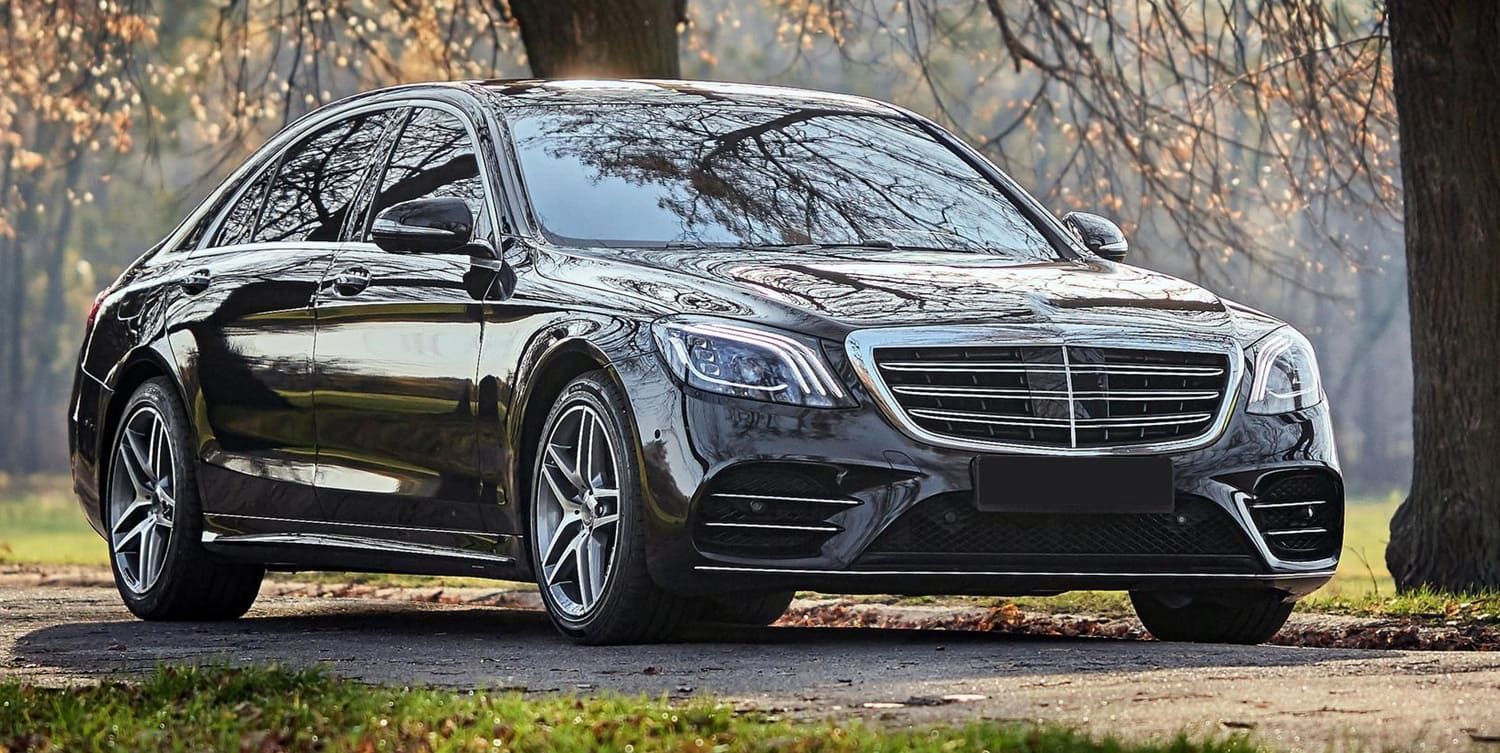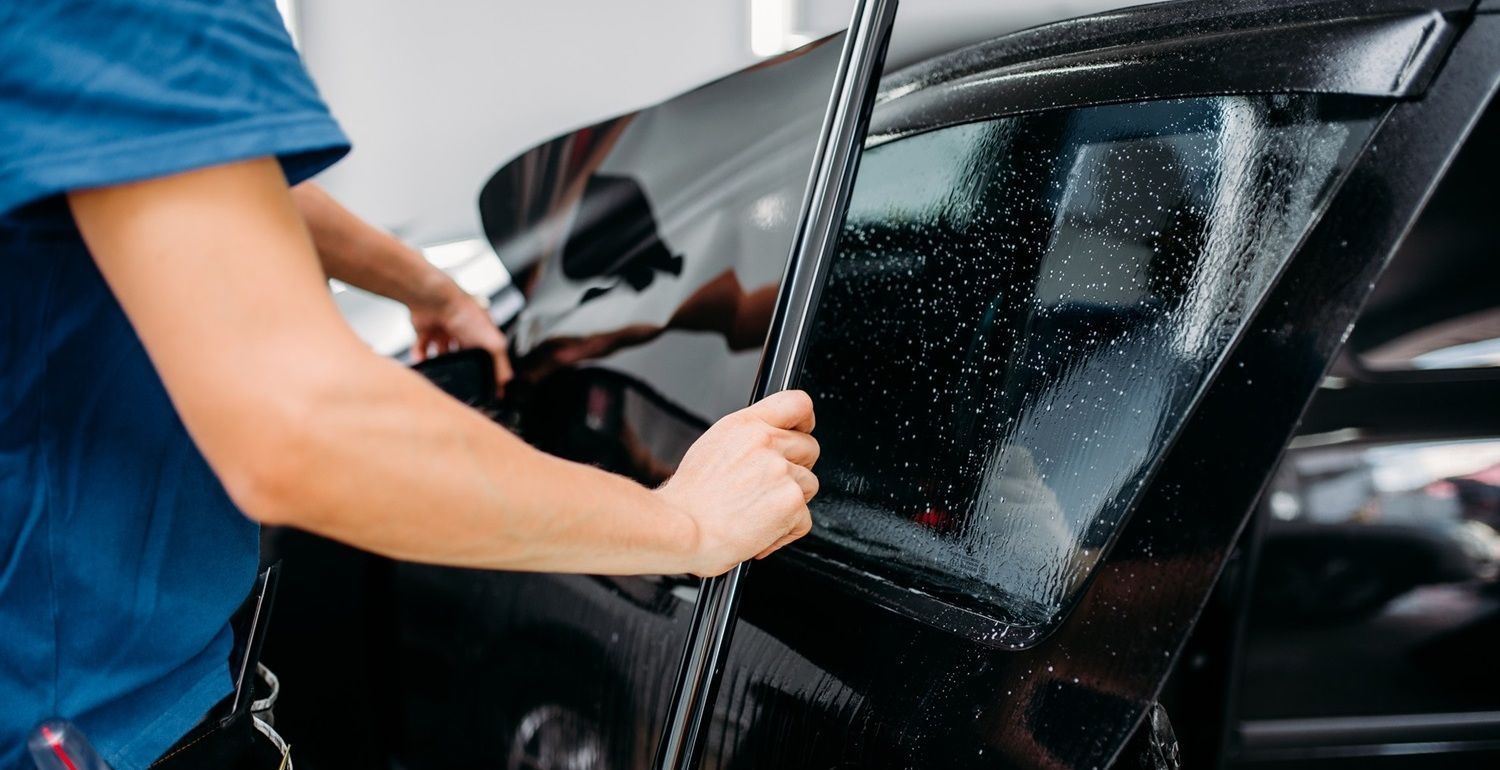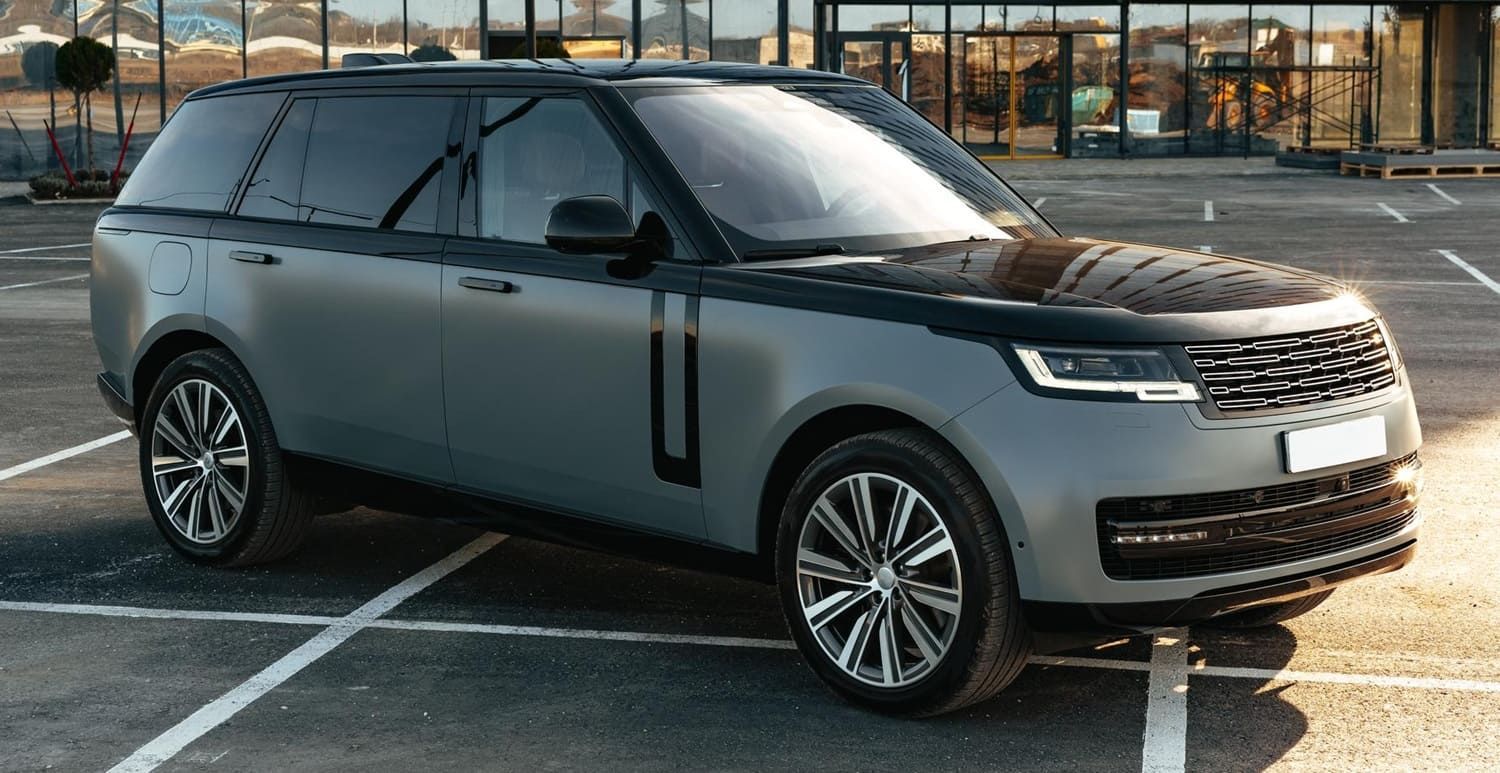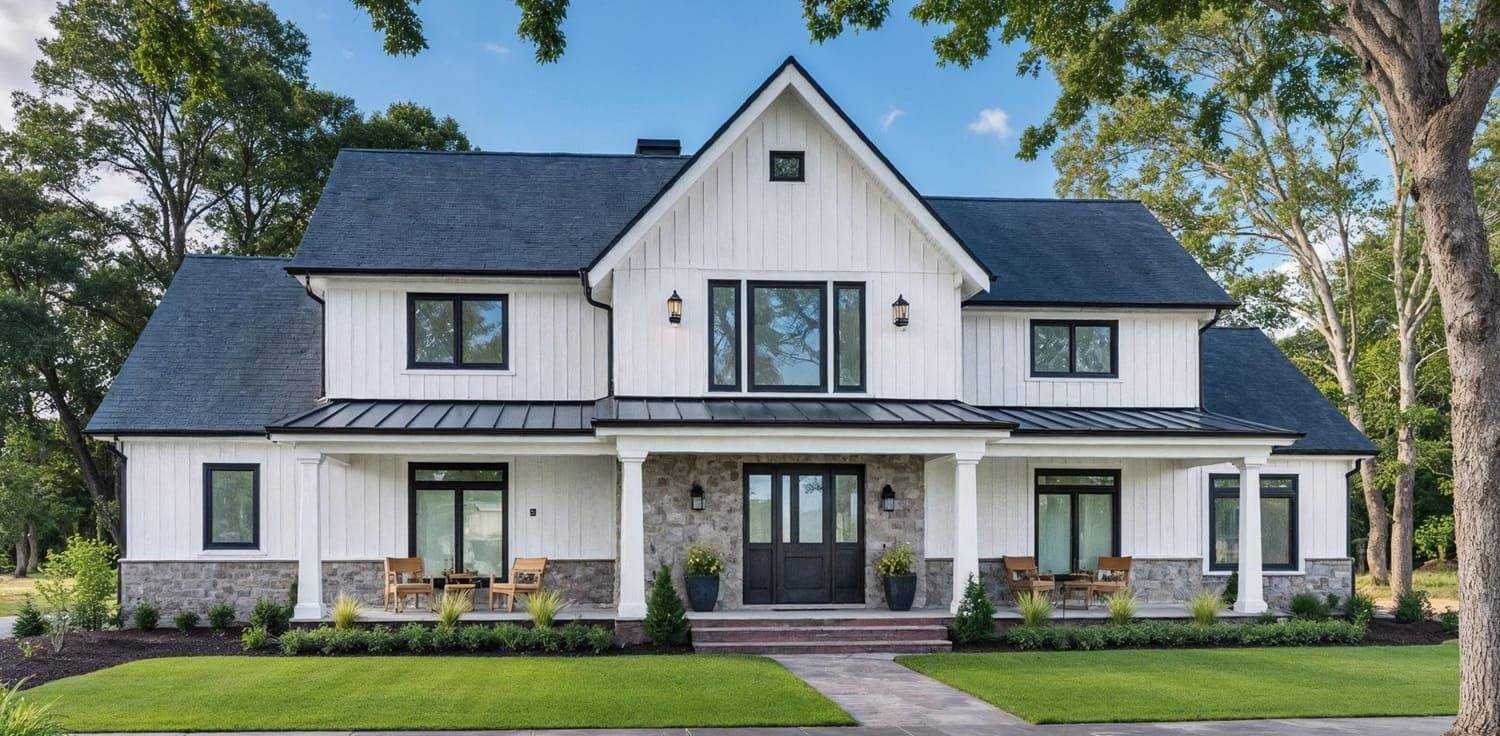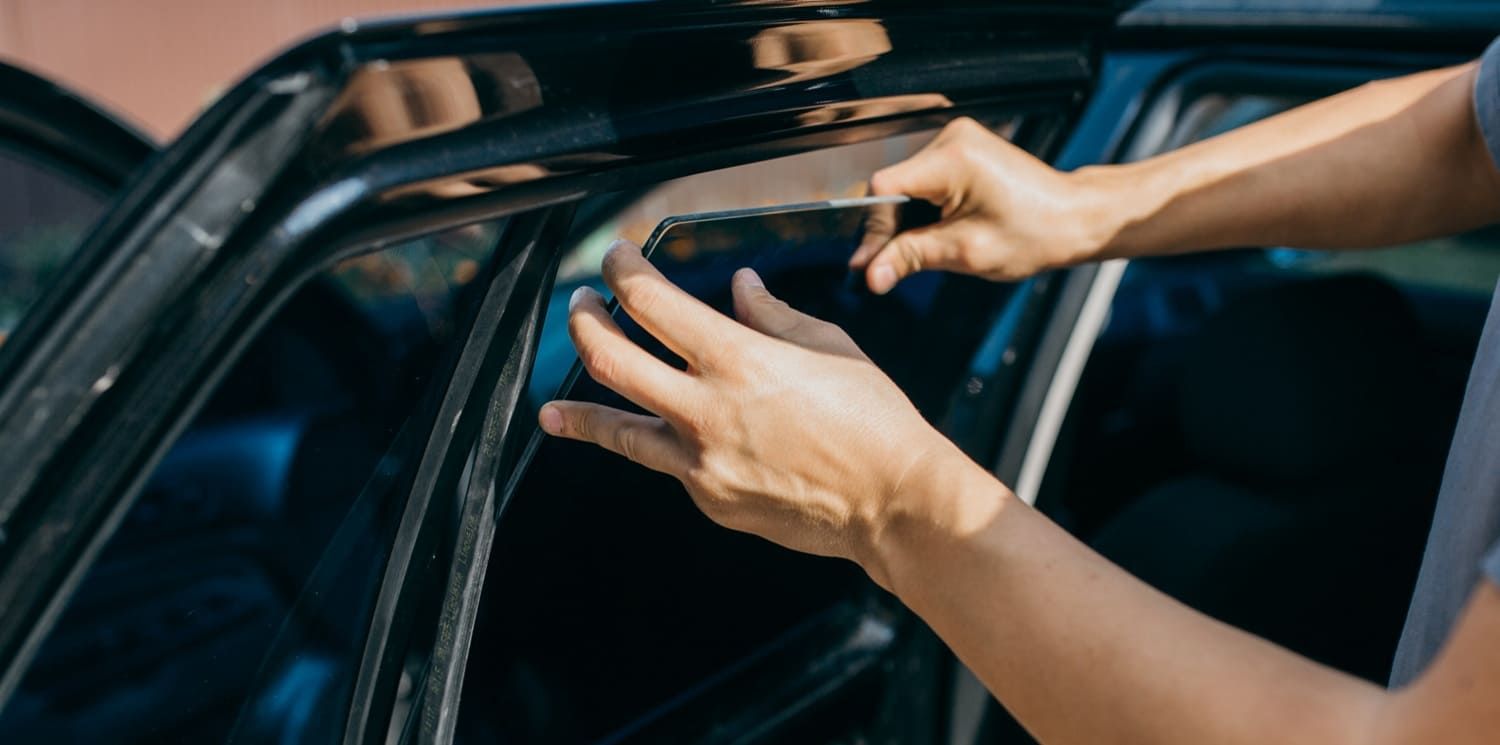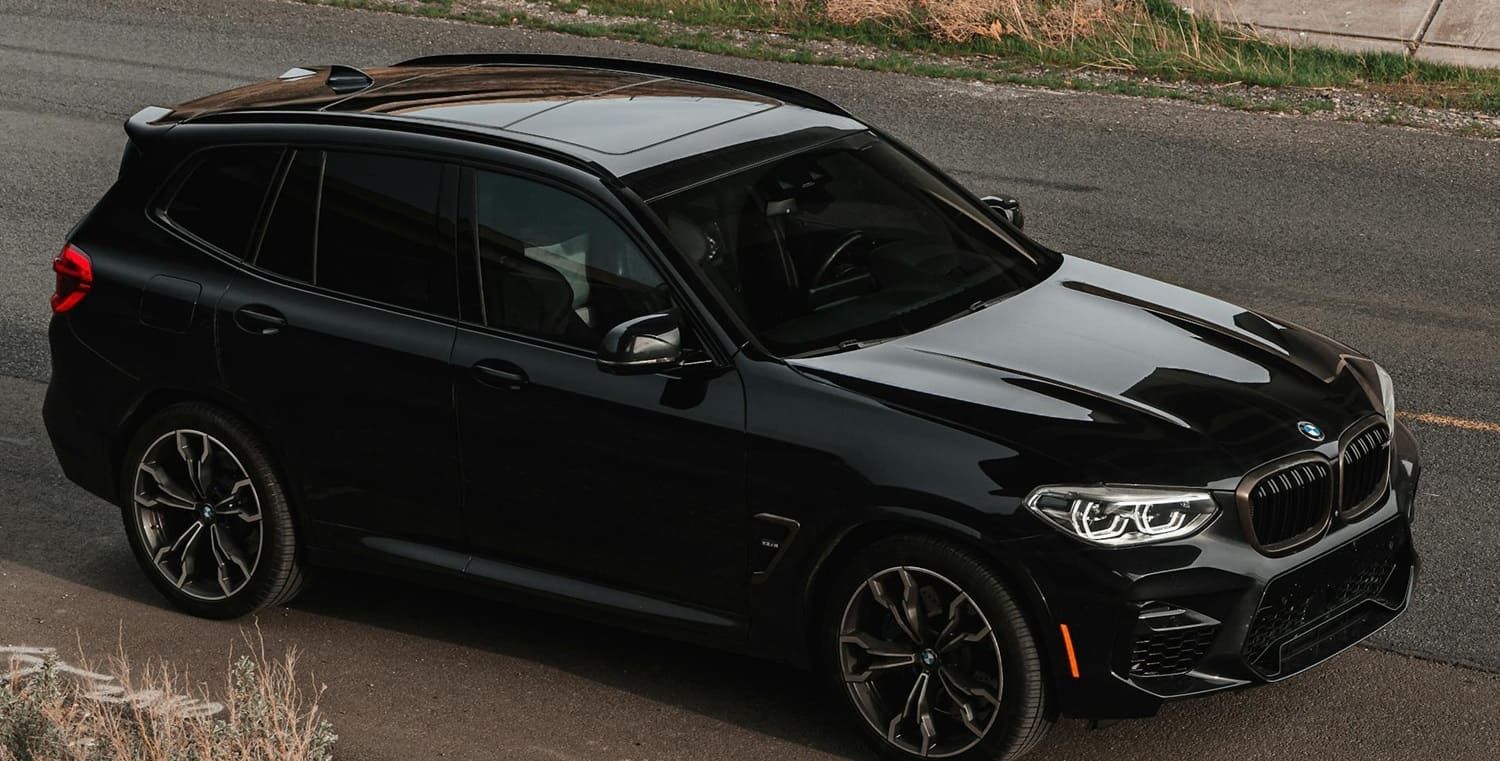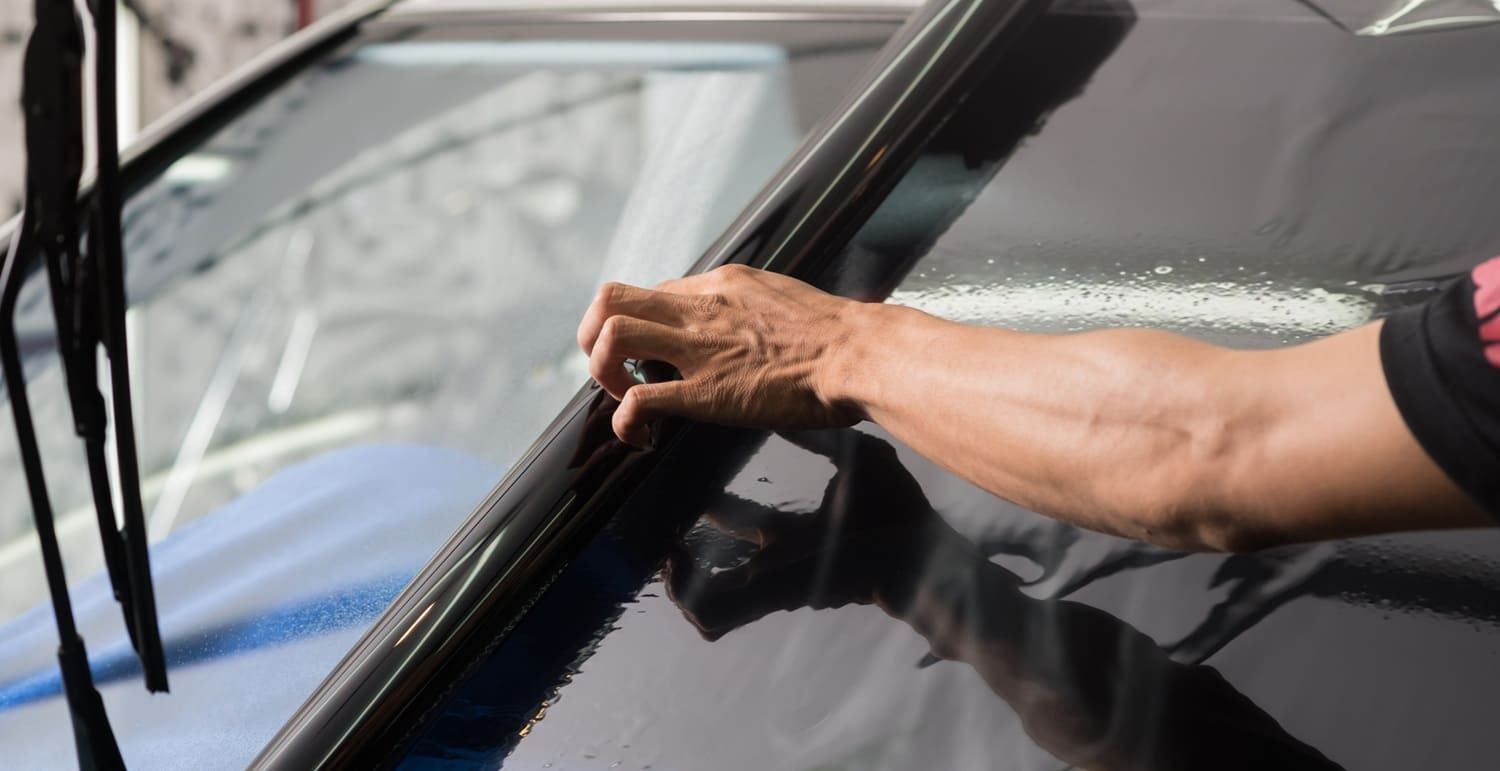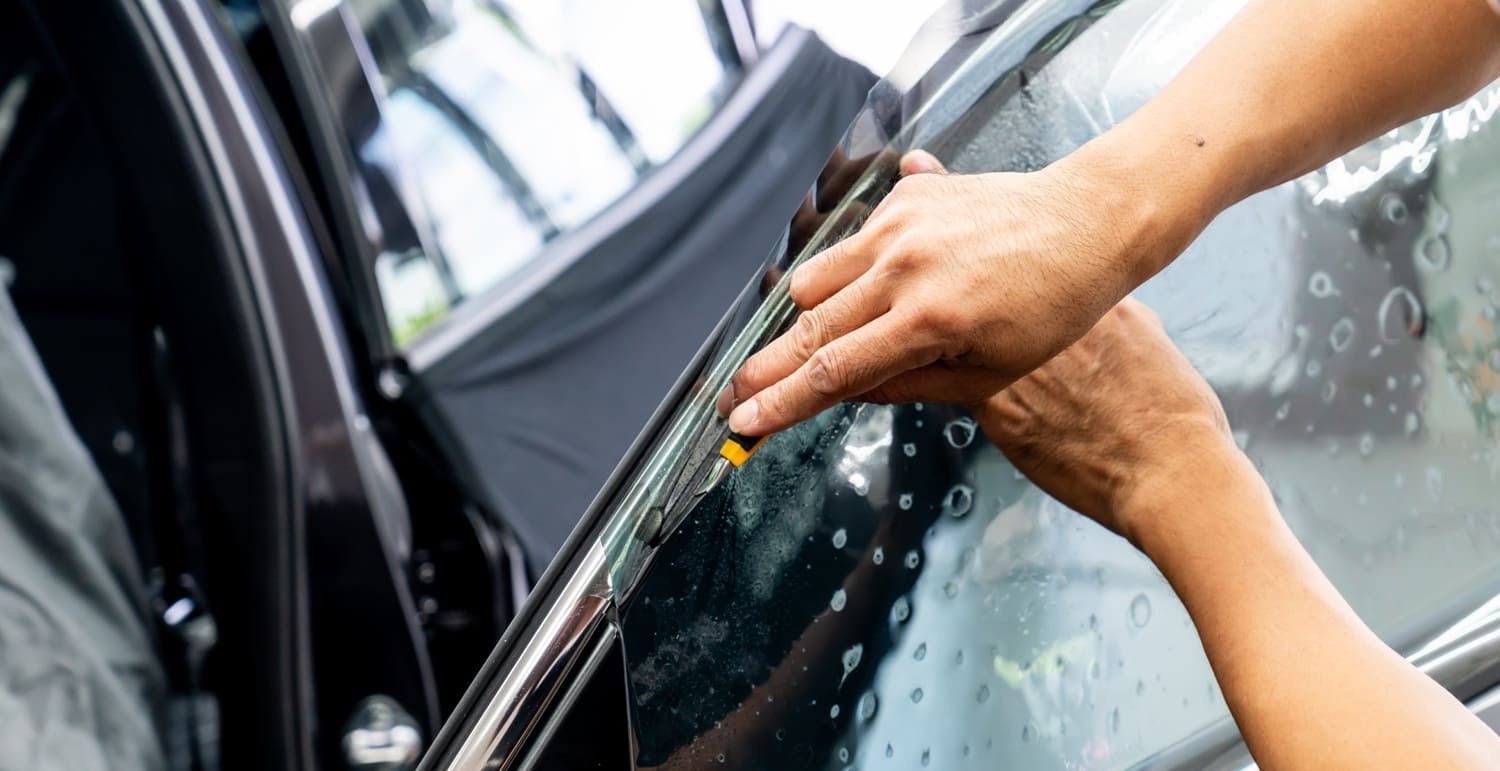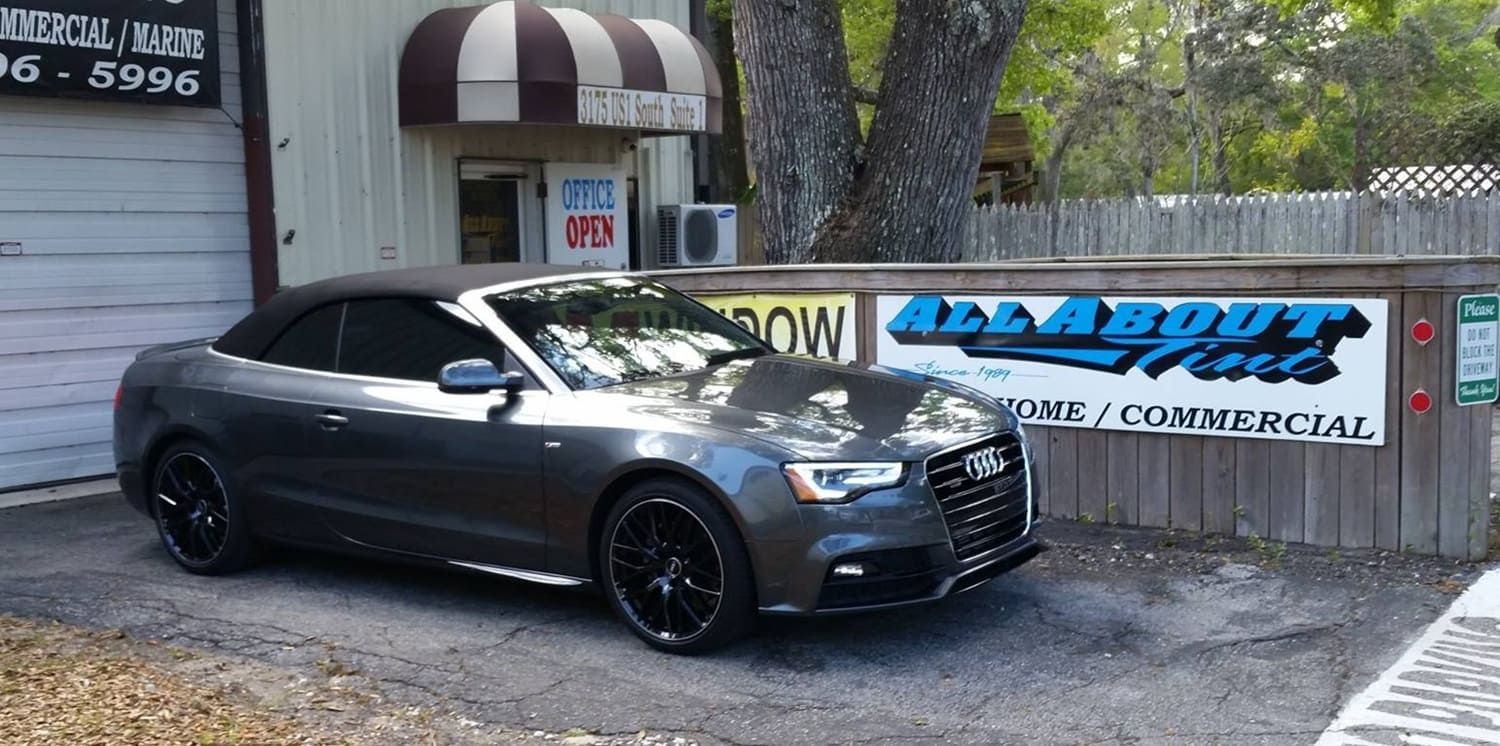How to Choose the Right Tint Shade for Your Car
Car window tinting involves applying a thin film to the interior side of your vehicle's windows. This film can block harmful UV rays, reduce heat, and provide privacy. Tints come in different shades and materials, affecting their functionality and appearance. It's essential to understand these differences to select a tint that aligns with your specific needs. The type of material used in the tint can significantly influence its durability and effectiveness, making it crucial to consider each option carefully.
Benefits of Car Window Tinting
Tinting your car windows can offer several benefits beyond just aesthetics:
- UV Protection: A good quality tint can block up to 99% of harmful UV rays, protecting your skin and the car's interior from sun damage. This protection can prevent the fading and cracking of your car's upholstery and dashboard, thereby maintaining its resale value.
- Heat Reduction: Tinted windows can significantly reduce the heat inside your car, making it more comfortable, especially in sunny climates. This reduction in heat can also decrease the need for air conditioning, potentially improving fuel efficiency and reducing wear on the car's cooling system.
- Increased Privacy: Tints provide privacy for you and your belongings by making it harder for others to see inside your vehicle. This added privacy can deter potential thieves and increase your sense of security while driving or parking in unfamiliar areas.
- Safety: In the event of an accident, window tint can help hold shattered glass together, reducing the risk of injury. Additionally, tints can minimize glare from the sun and other vehicles, enhancing visibility and driving safety.
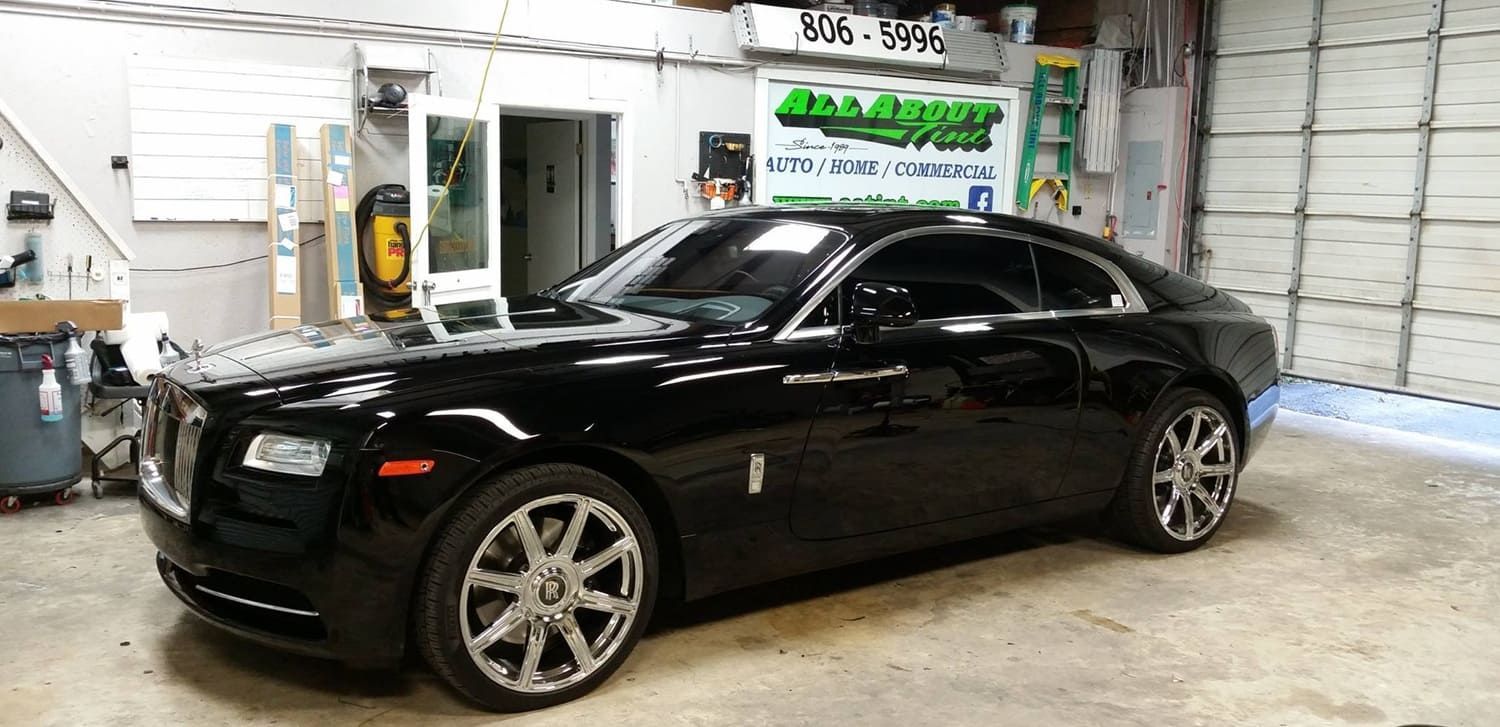
Legal Considerations: Florida Car Window Tinting Laws
Before selecting a tint shade, it's crucial to understand the legal limitations in your area. Florida, like many states, has specific laws regulating window tint darkness and reflectivity. Failing to comply with these regulations can result in fines and may necessitate the removal of your tint, costing you time and money. Being aware of these legal considerations beforehand can save you from potential hassles and ensure your vehicle remains street-legal.
Florida Tinting Laws
In Florida, the law specifies the allowable Visible Light Transmission (VLT) percentage for car windows. VLT refers to the amount of visible light that can pass through the window film. Here's a quick rundown of Florida's tinting laws:
- Front Side Windows: Must allow more than 28% of light in. This regulation ensures that law enforcement officers can see inside the vehicle for safety reasons.
- Back Side Windows: Must allow more than 15% of light in. This allows for more privacy while still maintaining a level of visibility that ensures safety.
- Rear Window: Must allow more than 15% of light in. This provides a balance between privacy and the need for clear visibility when reversing.
- Windshield: Non-reflective tint is allowed above the manufacturer's AS-1 line. This stipulation is designed to prevent any obstructions to the driver's view of the road.
It's important to note that Florida law also restricts reflective tints, which mirror more light and reduce glare. Reflective tints can cause visibility issues for other drivers and are therefore regulated to prevent accidents. Always ensure your chosen tint complies with both the darkness and reflectivity limits set by state law.
Choosing the Right Tint Shade
Selecting the right shade depends on your personal preference, the amount of privacy you desire, and compliance with local laws. Here are some tips to help you decide:
Consider Your Needs
- Privacy: If privacy is a top priority, you might opt for darker tints for the rear windows. However, remember that front windows need to comply with legal VLT limits. Always weigh the need for privacy against the necessity of maintaining a clear view for safe driving.
- Climate: In warmer climates, a tint with higher heat rejection can make a significant difference in comfort. Consider the average temperature in your area and choose a tint that effectively reduces interior heat, improving your driving experience.
- Visibility: Ensure your tint does not impair visibility, especially at night. Reduced visibility can increase the risk of accidents, so prioritize safety when selecting the shade of your tint.
Different Types of Tint Shades
- Dyed Tint: This affordable option offers a non-reflective finish and can reduce glare. However, it may fade over time, requiring more frequent replacement compared to other types of tint.
- Metalized Tint: Contains tiny metallic particles that reflect heat and UV rays but may interfere with GPS and radio signals. This interference can affect the functionality of electronic devices within the car, so it's important to consider your tech needs.
- Carbon Tint: Offers a matte finish and excellent UV protection without signal interference. Carbon tints are durable and provide a sleek appearance, making them a popular choice among car owners.
- Ceramic Tint: The highest quality option, providing superior heat and UV rejection with no signal interference. Ceramic tints are more expensive but offer long-lasting performance and exceptional protection.
FormulaOne Window Tint Options
FormulaOne is a well-known brand offering premium window tint solutions with various options to suit different needs:
- Classic Series: Offers a dyed film for good looks and privacy at an affordable price. This series is ideal for those seeking a budget-friendly option without compromising on appearance.
- Comfort Series: Provides enhanced heat and UV protection with a hybrid film. This option is suitable for drivers looking for increased comfort and protection in hotter climates.
- Pinnacle Series: Features advanced ceramic technology for optimal heat rejection and clarity. This top-of-the-line series is perfect for those who want the best in performance and longevity.
Installation Considerations
Once you've chosen the right tint, it's time to think about installation. Professional installation is recommended for the best results and to ensure compliance with legal standards. The quality of installation can significantly impact the performance and appearance of your window tint, making it a critical step in the process.
Professional vs. DIY Installation
- Professional Installation: Guarantees a clean finish and usually comes with a warranty. Professionals understand the intricacies of local laws and can advise on the best options. They have the expertise and tools necessary to achieve a flawless application, reducing the risk of bubbles or peeling.
- DIY Installation: While it may save money upfront, DIY tinting can be challenging and may not produce the same quality results. Mistakes in application can lead to bubbles, peeling, and legal issues. If you decide to go the DIY route, ensure you have the right tools and carefully follow all instructions to avoid common pitfalls.
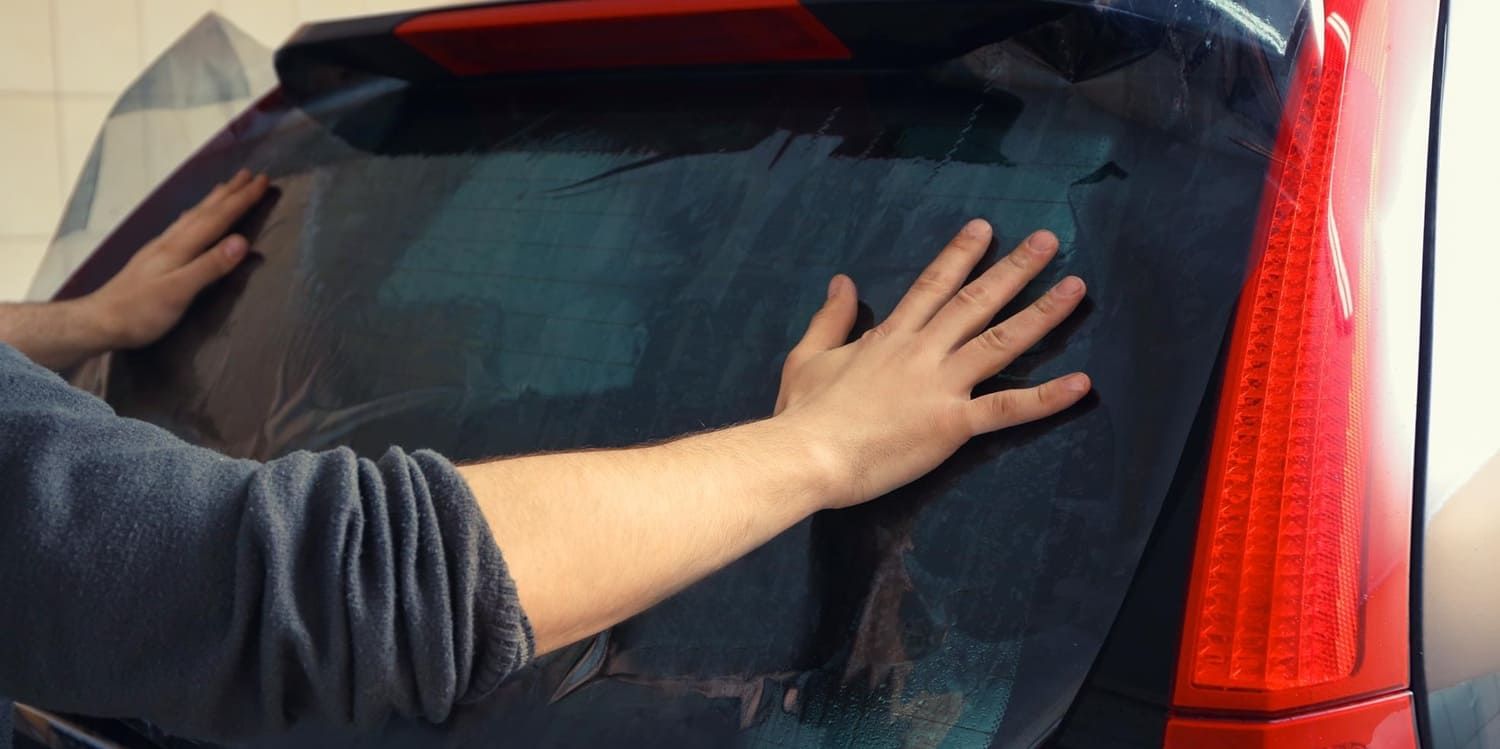
Maintenance Tips for Your Car Tint
To extend the life of your window tint and keep it looking its best, follow these maintenance tips:
- Wait Before Cleaning: After installation, wait a few days before cleaning to allow the tint to fully cure. This waiting period ensures the adhesive properly bonds to the window glass, preventing premature peeling or bubbling.
- Use Gentle Cleaners: Avoid ammonia-based cleaners which can damage the tint. Instead, use a mild soap solution. Ammonia can cause the tint film to break down over time, leading to discoloration and reduced effectiveness.
- Soft Cloths Only: Clean with a soft microfiber cloth to prevent scratching the tint. Rough materials can create scratches that mar the appearance of the tint and compromise its integrity.
Final Thoughts
ALL ABOUT TINT – Premium window tinting installers proudly serving St. Augustine, FL. Contact us today for a free estimate and elevate your driving experience with professional-grade tinting.
Choosing the right tint shade for your car involves balancing aesthetics, functionality, and legal requirements. By understanding the different types of tint, considering your specific needs, and adhering to local laws, you can enhance your vehicle's appearance and comfort. The right tint not only improves the look of your car but also adds value by protecting its interior and enhancing your driving experience.
Whether you opt for FormulaOne or another brand, ensure your window tint meets both your expectations and legal standards. With the right choice and proper installation from ALL ABOUT TINT, your car will not only look great but also provide better protection and comfort for years to come. Investing in quality tinting solutions can pay off in the long run, offering peace of mind and satisfaction each time you hit the road.
FAQs: How to Choose the Perfect Window Tint Shade for Your Car
What factors should I consider when choosing a tint shade for my car?
Consider your local tint laws, how much heat and glare reduction you want, the look you're going for, and whether you prefer more privacy or better visibility. The right shade balances aesthetics, comfort, and legal compliance.
What do tint percentages like 20%, 35%, or 70% mean?
Tint percentages refer to the Visible Light Transmission (VLT), or how much light can pass through the film. A lower percentage like 20% is darker and allows less light through, while 70% is lighter and more subtle.
Is darker tint always better for UV and heat protection?
Not necessarily. Modern ceramic and nano-ceramic tints can offer superior UV and heat protection even at lighter shades. That means you don’t need ultra-dark tint to get high performance—especially useful in states with strict tint laws.
What’s the best tint shade for night driving visibility?
A lighter shade—like 35% or higher—is typically best for maintaining clear vision at night. It reduces glare while still allowing enough light in to drive safely after dark.
Can I use different tint shades on different windows?
Yes, many drivers use darker tint on rear windows for privacy and a lighter legal tint on the front sides. Just make sure your overall setup complies with your state’s window tint regulations.
How do I make sure my chosen tint shade is legal?
Check your local or state regulations before choosing a tint shade. A professional tint shop will help you stay compliant while recommending the best option for style, comfort, and performance.


